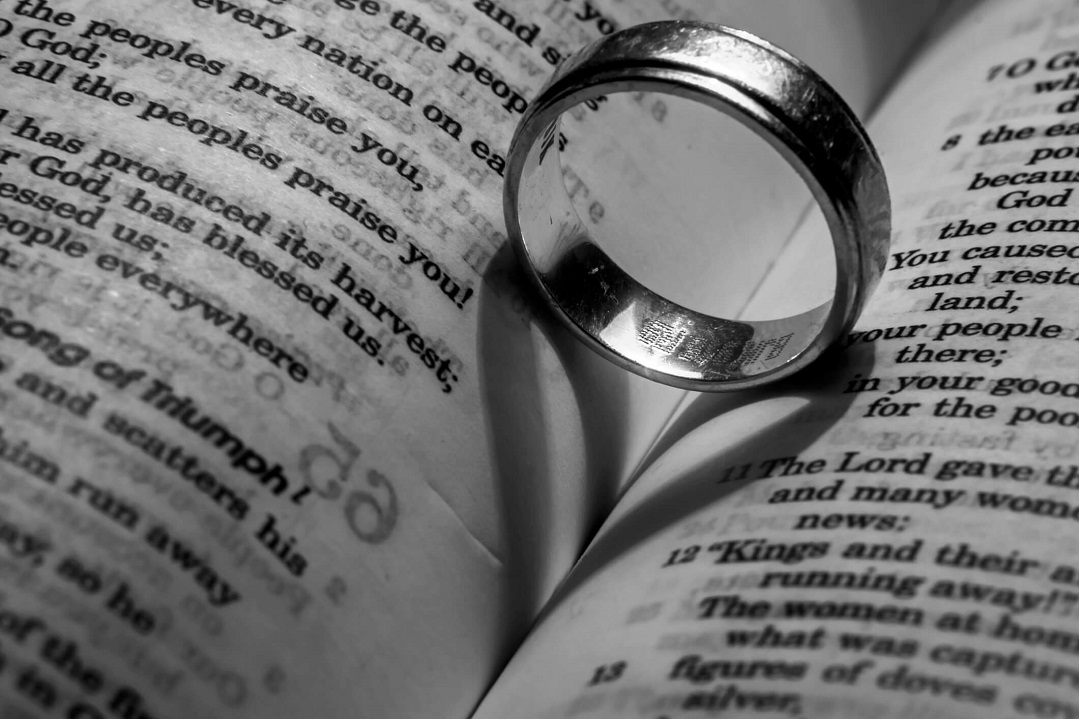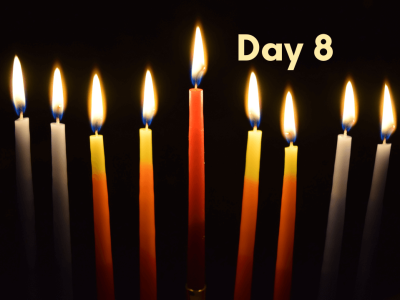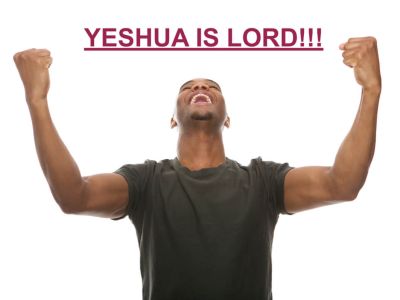Vow vs. Oath
Vow vs. Oath
MAKING A VOW OR OATH – Read Numbers 30.
What immediately jumps out at you from reading this chapter? What seems to be the driving point that Yahweh is wanting to impress upon them? And finally, what is the original intent behind the plain black text that we can apply for today?
I think it’s pretty clear that the main point He’s trying to make is that making a vow or an oath is very important to Him and to our fellow man. But amazingly, a “vow” and an “oath” are two different words in the Hebrew language.

A VOW
Read verse 2 again.
“If a man makes a vow to the LORD, or swears an oath to bind himself by some agreement, he shall not break his word. He shall do according to all that proceeds out of his mouth.”
The Hebrew word for “vow” is “neder” and the word for “oath” is “Shebooah.” And while they are very much connected, they also have important differences.
When one makes a spiritual neder, he can only make a neder to the LORD. A neder is almost always conditional; a specific action needed to come to pass in order for the neder to be binding. For example, read:
Genesis 28:20-22 “Then Jacob made a vow, saying, “If God will be with me, and keep me in this way that I am going, and give me bread to eat and clothing to put on, so that I come back to my fathers’ house in peace, then the LORD shall be my God.”
In this passage, Jacob makes a vow that IF Yahweh takes care of him and brings him back safely, he will serve Him. Take a look at the following passage in 1 Samuel:
Read 1 Samuel 1:1-11
“There was a certain man of Ramathaim-zophim of the hill country of Ephraim whose name was Elkanah the son of Jeroham, son of Elihu, son of Tohu, son of Zuph, an Ephrathite. He had two wives. The name of the one was Hannah, and the name of the other, Peninnah. And Peninnah had children, but Hannah had no children. Now this man used to go up year by year from his city to worship and to sacrifice to the Lord of hosts at Shiloh, where the two sons of Eli, Hophni and Phinehas, were priests of the Lord. On the day when Elkanah sacrificed, he would give portions to Peninnah his wife and to all her sons and daughters. But to Hannah he gave a double portion, because he loved her, though the Lord had closed her womb. And her rival used to provoke her grievously to irritate her, because the Lord had closed her womb. So it went on year by year. As often as she went up to the house of the Lord, she used to provoke her. Therefore Hannah wept and would not eat. And Elkanah, her husband, said to her, ‘Hannah, why do you weep? And why do you not eat? And why is your heart sad? Am I not more to you than ten sons?’ After they had eaten and drunk in Shiloh, Hannah rose. Now Eli the priest was sitting on the seat beside the doorpost of the temple of the Lord. She was deeply distressed and prayed to the Lord and wept bitterly. And she vowed a vow and said, ‘O Lord of hosts, if you will indeed look on the affliction of your servant and remember me and not forget your servant, but will give to your servant a son, then I will give him to the Lord all the days of his life, and no razor shall touch his head.'”
Again, you can see that a conditional promise is being made, making this a true vow. A vow is not a promise to do what the scriptures already say to do. It is a vow to do something that is voluntary.
Read Leviticus 7:16
“But if the sacrifice of his offering is a vow or a voluntary offering, it shall be eaten the same day that he offers his sacrifice…”
How is a thanksgiving offering or a voluntary offering a conditional vow offering? Why are they bringing the offering to begin with if they aren’t required to?
Some condition has been met. Beyond their regular tithe offerings, perhaps the person had made a neder to Yahweh that if they had a banner crop that year, they would bring the Lord an extra offering to express their thanks. Discuss how you might make a neder today to the LORD.
In the physical realm, we make neders all the time. For instance, when we have a job, we are, in effect, making a vow that as long as they pay us, we are promising to perform a certain duty. According to Numbers 30, we are to fulfill all such duties as unto the LORD because we are bantering His name. When we cheat on the job or fail to fulfill our duty completely, we are breaking our vow, including the one we made to the LORD because we are commanded to do all things as unto Him.
Can you think of other situations in life where a neder is applicable?
BOTTOM LINE
When we give our word to someone – or to Yahweh Himself – on a conditional promise, we are to immediately and expeditiously fulfill our end of the deal when the condition is met. When we do so, we create integrity in our lives. In Hebrew, “integrity” is “Tome.” Tome has the idea of being complete or having fullness. When we give our word and we fulfill it, we are “completing” the vow and thus bringing completion to ourselves. When we do not keep our vows, we are incomplete, empty, and create a reputation for ourselves as untrustworthy.
It is equally important to be careful of making vows or oaths where more than just you are dependant on fulfillment. In my former financial business, I made the mistake of selling a product that I could not fulfill. Yet because I was the one selling it and making the oath the owners and insurance companies had made, I became the responsible party and was required to pay the consequences if that vow wasn’t fulfilled. So it is critical if you are going to enter a vow with someone else that you understand that your word is only as good as theirs.
Every vow is a sacrifice to our heavenly Father. When we truly realize how much the heavenly Father is actually doing for us and how much He is watching out for and loving us, our entire lives will be turned into a constant state of thanksgiving.
Read Hebrews 13:15-16
“Through him then let us continually offer up a sacrifice of praise to God, that is, the fruit of lips that acknowledge his name. Do not neglect to do good and to share what you have, for such sacrifices are pleasing to God.”
There is nothing that will fill your soul with joy more than living a life in a constant state of thanksgiving. When you are thanking Him for everything He has given you, are fully aware of all you are blessed with, and trust in Him for all that will soon exist as if it is already here, your joy will be “complete.” Where is anxiety? Where is worry? Where is even the knowledge of pain? They do not exist. Every fiber of your being is filled with the inexpressible joy of your thankfulness for all He is, has done, and will do.
AN OATH
The primary meaning of a vow is a conditional promise with terms. An oath, on the other hand, is an unconditional promise that is made regardless of the situation or terms. Before we dive into Hebrew, which is quite amazing on this word, let’s go through a few scriptures.
Read Genesis 24:3
“and I will make you swear by the LORD, the God of heaven and the God of the earth, that you will not take a wife for my son from the daughters of the Canaanites, among whom I dwell. But you shall go to my country and to my family and take a wife for my son Isaac.”
This is one of the first times that the word for “oath” shows up in the bible using the English word “swear.” In verse 8 Abraham says that “if the woman is not willing to follow you, then you will be released from this oath.” Both “swear” and “oath” come from the same root word: “Shabah.”
Shebooah (oath) comes from the root word “shabah,” which literally means “to be complete” or “to seven oneself” and is connected to the word “Shabbat,” as well. Seven is the number of perfection and the entire cycle of His holy days revolves around it. When you make a shebooah, you are “sevening” yourself: attaching yourself to all that is holy. You are binding yourself by the seven spirits of Yahweh represented by the seven-branched menorah that stands in the Temple. In effect, you’re saying, “May I be judged by all that God is and all His creation if I do not keep this oath.” There would be a lot less people rushing into marriages if they understood this principle.
Read Joshua 9:19-20
“Then all the rulers said to all the congregation, ‘We have sworn to them by the LORD God of Israel; now therefore we may not touch them. This we will do to them: We will let them live, lest wrath be upon us because of the oath which we swore to them.'”
As you can see, when a vow becomes unconditional, it becomes an oath. A shebooah is very serious and must be fulfilled by all means necessary and at all costs. Can you think of a shebooah today that we make with one another and with God?
How about a marriage ceremony? We call them “vows” but really they are unconditional oaths. The couple is committing to one another “for better or for worse, for richer or for poorer, etc…” There are no conditions. Love is to be given regardless of all circumstances.
For all intents and purposes, a shebooah cannot be broken. It is a permanent vow. The only way an oath can be broken is if there are very specific exclusions that are listed within the oath, as in the case of Abraham making his servant swear an oath to find a bride for Isaac.
Take a look at Hebrews 7:20-21:
“And inasmuch as He was not made priest without an oath for they have become priests without an oath, but He with an oath by Him who said to Him:
‘The LORD has sworn
And will not relent,
‘You are a priest forever
According to the order of Melchizedek’”
Now that you have a better understanding of shebooah and what the difference is between an oath and a vow, why do you think it was important for the author to point out that the regular Levites were not made priests with an oath but Yeshua WAS? How were the priests made priests?
The Levitical priests were made priests simply by heritage. Their bloodline is what ensured their position, not individual oaths from Yahweh. On the other hand, Yeshua WAS confirmed and made a priest by an actual unconditional, irrevocable oath. This is is how Yeshua, who is not from the tribe of Levi, could actually become a priest. Because the Levitical priests were not made priests under oath, the law could be changed and make room for a non-Levite to be a priest. If they would have been under oath, Yeshua could not become a priest because an oath cannot be revoked. Yahweh left a “loophole” to allow for His Son to be confirmed under an shebooah that could not be revoked no matter what tribe He was from.
Read James 5:12:
“But above all, my brothers, do not swear, either by heaven or by earth or by any other oath, but let your ‘yes’ be yes and your ‘no’ be no, so that you may not fall under condemnation.”
What on earth can this scripture mean after we just learned what the Torah says about making oaths? Is this a contradiction in the bible? What do you think this verse is saying?
Let’s go to Matthew 5 to see what James is actually quoting and see if we can get a bit more clarity.
Mat 5:33 — Mat 5:37
Oaths
“Again you have heard that it was said to those of old, You shall not swear falsely, but shall perform to the Lord what you have sworn.’ But I say to you, Do not take an oath at all, either by heaven, for it is the throne of God, or by the earth, for it is his footstool, or by Jerusalem, for it is the city of the great King. And do not take an oath by your head, for you cannot make one hair white or black. Let what you say be simply ‘Yes’ or ‘No’; anything more than this comes from evil.”
As you can see, Yeshua is actually quoting directly from Numbers 30. Is He contradicting Himself by telling them in one passage what to do when they make a vow and then telling them not to make a vow at all in this passage?
We actually get a clue from the above passage when it says that they made oaths by earth, Jerusalem, or their own head. In ancient times, it was not uncommon for people to make off-the-cuff promises backed up by all kinds of things, including foreign gods. As in all oaths, a promise is only as good as the one backing it. If I promise you that I will give you a million dollars but am dead broke, my promise is not worth my word. But if I promise you a million dollars and I swear by my father who has backed my word and is a millionaire, then my word has meaning.
In the same way, Yeshua is not saying that you cannot make legal promises to both man and God. He is making a point that man should not make frivolous, off-the-cuff promises that they cannot keep. If someone asks you if you can do something, your simple answer should be “Yes” or “No.” There should be no swearing to others unless it is in a legal setting.
Today, many people say “I swear to God” like it is just slang, whether they mean it or not. This is forbidden and evil as oaths and vows to Yahweh are of the most serious nature.
To further this point, believe it or not, the third commandment is all about this subject. Turn to Exodus 20.
Read Exodus 20:7
“You shall not take the name of the Lord your God in vain, for the Lord will not hold him guiltless who takes his name in vain.”
This commandment is in no way talking about the modern curse word associated with this as that word wasn’t even invented until our modern-day language. In short, names carried authority in the ancient world. That is why there are no last names. Joshua the son of Nun had authority because of whose son he was. His authority and role was based off the reputation and authority of his father. In the same way, once we are saved, our authority is not based on who we are or where we come from, but on the name of our heavenly Father. It is His reputation and what His role is that determines ours. But let’s get back to the name.
The name of Yahweh carries the highest authority in the universe. The word “vain” here is “shav,” which, in Hebrew, means “to bring deceit or shame, to make empty.” The name of Yahweh is so holy and so above all other names that it is to never be treated as a common name. How does one make it common? Well, truth be told, this scripture should actually be read as “You shall not make a vow or an oath in the name of Yahweh and not keep it or you will be making His name empty and common.” In other words, if you swear an oath in His name to show the other person (or God Himself) how serious an oath it really is, and you don’t fulfill that oath, you are deceiving the other person, which is exactly what “vain” means. You are making His name as worthless as any other common name.
Think of how serious this is. If you have promised to love Yahweh with all your heart, mind, soul, and strength and have promised to follow Him with all your heart, you are actually bantering His name in the story of your life. You are literally telling the world around you that we are people of the Book. We are “called by His name,” as 1 Chronicles 7 says. When we follow His commandments and keep our oath to Him, we become complete and thus point people to the Truth. When we do not live what we proclaim, we break the third commandment and become what the world calls a “hypocrite”: someone who is a deceiver.
To summarize. A vow is a conditional promise. It is dependent on its terms being completed before it can be fulfilled. An unconditional vow is an oath that is NOT dependent on any “If, then” statements. When Yahweh made the OATH that He was going to send His only begotten Son into the world to redeem man from sin, it was not dependent on us doing anything in order for Him to come. On the other hand, He made a VOW that anyone that surrenders their life to Him and follows Him will receive eternal life. That is conditional.
The seriousness of this topic cannot be over-exaggerated. When we don’t keep our word, we are not displaying the name of the Messiah in us in such a way that promulgates truth and draws people to Him. Whether it be being on time to something that you have committed to, keeping your wedding vows, fulfilling a promise, or finishing something you started, we all have areas that we can work on to better banner the name of Christ in the earth realm. And we all need to repent for falling short of His glory in this area.
Lastly, although the rest of the chapter is all about the right of the husband and father to annul any vow or oath that anyone under his authority has made without his knowledge, there is a greater principle that is found in this set of commandments. It is clear that the husband or father has the authority to annul any oaths or vows that he deems unwise, unholy, or not in the best interest of the one under his authority that made the oath. But outside of the obvious reason of protecting the family assets and the individuals that are in his care, how can we apply this to Yahweh in our relationship with Him? What happened in the legal courts when you gave your life to Him?
Before someone comes and surrenders their will to the Father through the blood of His Son, they have unknowingly or knowingly made vows and oaths that bind them and restrict them to the kingdom of HaSatan. Through their sin, they have yoked themselves and have literally bound themselves up with the cords of the evil one. It is an irrevocable oath and the sentence is certain death. Once Adam sinned and broke the covenant oath, he sentenced himself to certain death with no way out. The entire sacrificial system was created to temporarily cover the sin so as to put God’s people in right standing with Him to receive blessings again. But it never did away with the sin. It just covered it. When a person fully repents of their sin and chooses to follow Yeshua as their Messiah, they are, in a very real sense, admitting that they have made an oath to HaSatan and can only be free from that oath in death. It is at the point where the person confesses that he is a sinner and admits that he has been in a contract with the adversary the Devil that his new heavenly Father immediately annuls it, setting the person free from His former oaths and wicked vows. Amen!
This is the beauty of having such a benevolent heavenly Father. When we do mess up, there is no condemnation on his lips (Romans 8:1). There might be chastisement, for He disciplines those He loves. But you will not find a condemnational word proceed out of His mouth. His love covers a multitude of sins. So if you have blown it a million times as I have, just go to Him and repent for breaking your vow and determine in your heart that today you are going to start fresh. And with His divine assistance, you will be a better Promise-keeper and a man/woman of your word.
Shalom!
Jim Staley












